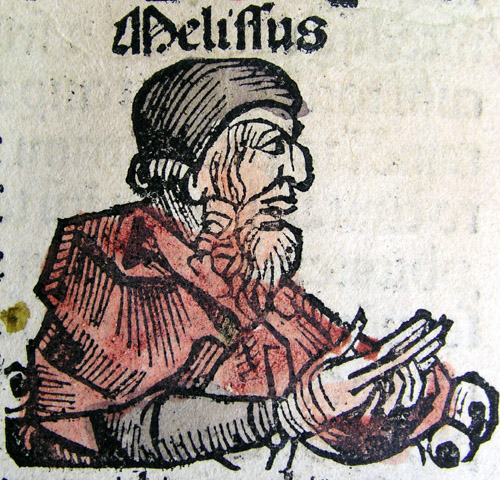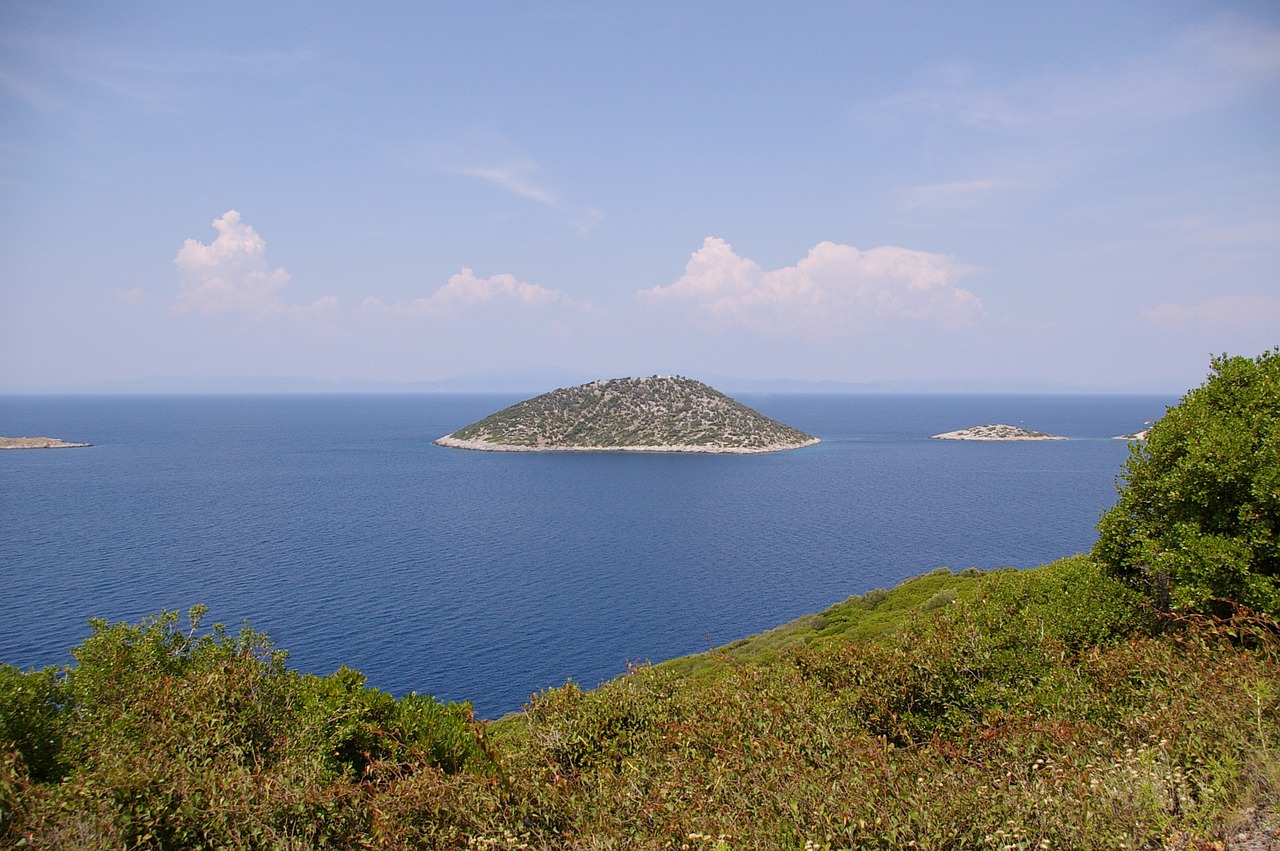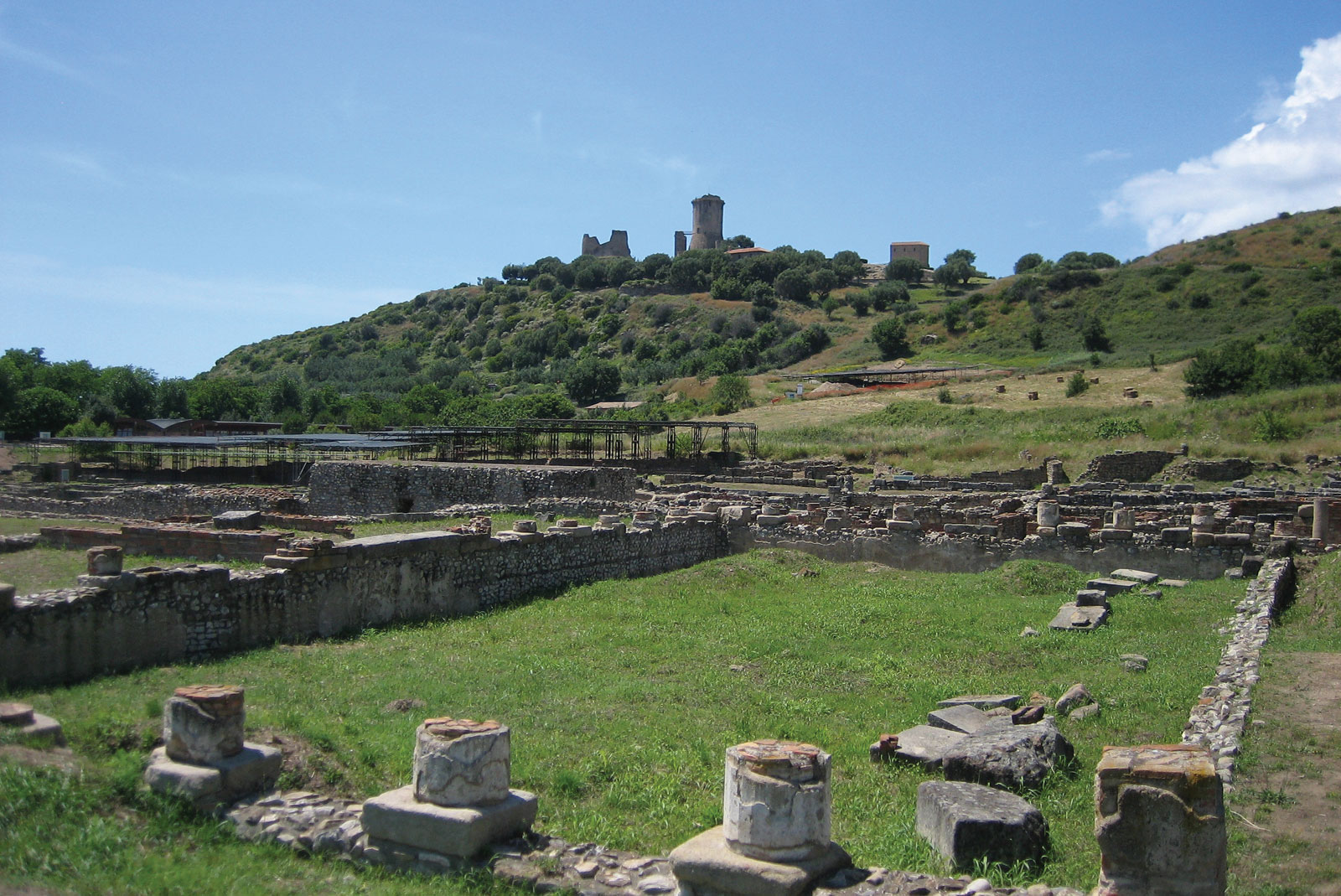Written by Ed Whalen, Contributing Writer, Classical Wisdom
Too often, students of philosophy are only aware of the great names in ancient Greek philosophy. There are many lesser-known philosophers who developed remarkable arguments that are still relevant today. One of these is the somewhat mysterious figure of Melissus of Samos. Not only was he a great thinker he was also a successful military man who even reportedly defeated the Athenians.
Life of Melissus of Samos
There are few details about the life of Melissus of Samos, but he was believed born on the Aegean Island of Samos about 500 BC. At the time of his birth, Samos was an important naval and trading power. It appears that Melissus was a student of philosophy and was also probably a member of the Samian elite. Sources indicate that he studied under the great Parmenides of Elea, founder of the Eleatic school. Melissus likely traveled to Elea (located in modern-day southern Italy) to study under Parmenides.
At some point he returned to Samos, where he became a military commander and is thought to have become active in local politics. In 440 AD, Samos was an independent state within the Delian League dominated by Athens. The Athenians had effectively turned the Delian League into an extension of their empire. That same year, the Athenians attempted to fully conquer the island. It appears that Melissus, presumably a member of the oligarchic party, was given command of the Samian navy.
He is reported to have inflicted at least one if not two defeats on the Athenians under Pericles. However, Athens ultimately triumphed. Samos was absorbed into the empire and a democratic government imposed on the island. It is not known if Melissus played a part in the failed oligarchic counter-revolution that, with Persian support, tried to oust the Athenians and their democratic allies.
It appears that Melissus also taught philosophy and among his students was the future atomist Leucippus. The date of the Samian philosopher’s death is not known. It appears that he was well-known in his own lifetime.
Philosophy of Melissus of Samos
Melissus wrote a short treatise called On Nature of which extensive fragments have survived. His theories were also referenced in works by other philosophers.
Melissus was regarded as the third member of the Eleatic School, alongside Parmenides and Zeno (best known for his paradoxes). This was a school of Pre-Socratic thought that was established in Elea in the fifth century BC in what is now Veila in southern Italy. Their ontological theory was that everything was one, a theory known as monism. The Eleatics, however, proposed a radical monism in which everything is considered part of a whole, including material, living things. For them, the one is eternal and indivisible. In a significant departure from other pre-Socratic philosophers, the Eleatics valued reason over observation.
By and large, Melissus followed Parmenides and the second great Eleatic, Zeno. Melissus’ philosophy was distinctive in that he believed his predecessors did not fully address the issue of motion or the distinction between being and non-being. Unlike Parmenides, he did not believe that the one was an unchanging present. Melissus held that the one was eternal, that it had always existed and was indestructible. He also argued that it was unlimited, stretching out in all directions and that void, or nothingness, did not exist.
Melissus was a pioneer in applying the deductive method of reasoning. His arguments were very rigorous. At times he seems to suggest that the one is identical with the non-material, referring to it as incorporeal and disembodied.
Influence of Melissus
Melissus’ work greatly contributed to the Eleatic School. However, some thinkers, such as Aristotle, ridiculed his claims. If it is true that Melissus taught Leucippus, this suggests he was influential in his own time, especially with the Atomists. The Atomists believed that the world was composed of tiny indivisible atoms and their arguments were clearly influenced by radical monism.
The Sophists were also inspired by Melisuss’ use of deductive reasoning; they used it to prove that nothing existed, as was typical of their nihilism. The Sceptics too were influenced by the deductions of the Samian and his distrust of empirical investigations. They used one of Melissus’ arguments to show that knowledge of the external world was unreliable.
Conclusion
Melisuss of Samos may not be a household name in Greek philosophy, but his contributions were real and substantial. He arguably presented the most logically rigorous version of radical monism. His method of reasoning was also important, influencing the theories of the Atomists, Sophists and Sceptics.
References:
Barnes, Jonathan (1983) The Presocratic Philosophers. New York: Routledge.
Russell, Bertrand (1990) The History of Western Philosophy. London and New York: Routledge













No comments yet. You should be kind and add one!
Our apologies, you must be logged in to post a comment.